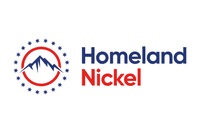Nickel Prices Climb After Philippines Orders Mine Closures
The base metal touched a three-week high on the LME on the back of supply concerns.
Nickel prices jumped Thursday after the Philippines, the world’s top nickel producer, ordered 23 mines to shut down due to environmental concerns. The mines account for about 50 percent of the country’s annual nickel output, and around 10 percent of world supply.
Three-month nickel on the London Metal Exchange touched a three-week high of $10,500 a tonne early in the day, but had pulled back to $10,025 a tonne by 1:00 p.m. EST.
At the end of 2016, a number of banks and analysts raised their 2017 price forecasts for nickel. Morgan Stanley (NYSE:MS) increased its price estimate by 13 percent, to $11,657 a tonne, while Deutsche Bank (NYSE:DB) said it sees prices rising even further this year, to $11,750 a tonne. Some market watchers believe the news from the Philippines could provide more support for prices.
“The Philippines disruption should have a bigger impact on the overall nickel market considering it is the biggest nickel ore producer in the world,” Reuters quotes ANZ commodity strategist Daniel Hynes as saying. “If they are hard and fast orders, then the nickel price should be well supported,” he added.
Environmental Concerns
In addition to the 23 mine closures, the Philippines has ordered that work be suspended at another five mines. The country’s decisions come after a months-long audit of the mining sector that began in July 2016. It was followed by a review by the Mines and Geosciences Bureau.
“My issue here is not about mining, my issue here is social justice,” Environment and Natural Resources Secretary Regina Lopez said at a briefing where footage of environmental damage from mining was shown. “Why is mining more important than people’s lives?” she added.
Most of the mines that have been ordered to close are nickel operations. Those run by Hinatuan Mining, a unit of top Philippines nickel producer Nickel Asia (PHS:NIKL), have been told to shut down, as have mines run by BenguetCorp Nickel Mines (PHS:BC).
Operations have also been suspended at the country’s top gold mine, though operator OceanaGold (TSX:OGC,ASX:OGC) said it has not received official orders from the government. “Should we ultimately receive a suspension order as suggested today we have very strong legal grounds to have it overturned,” said Mick Wilkes, the company’s president and CEO.
OceanaGold’s share price fell 7.74 percent on Thursday, and was sitting at $4.29 as of 1:00 p.m EST.
Indonesia’s Output
While the mine closures and suspensions in the Philippines will take some nickel off the market, it’s possible that a recent change in Indonesia’s nickel export rules could offset any shortages. That means the news may not have as drastic an effect on nickel prices as some expect.
Last month, Indonesia relaxed its ban on low-grade nickel ore exports, stopped since 2014, in an attempt to boost its economy. Under the new rules, miners can export up to 5.2 million tonnes of nickel ore a year.
“The Philippine authorities seem adamant [about mine shutdowns and suspensions] … offsetting that, though, is the news we had a couple of weeks ago about the partial lifting of the ban on Indonesian exports,” said Caroline Bain, chief commodities economist at Capital Economics.
That said, the rules accompanying the relaxation on Indonesian nickel exports could prevent an immediate ramp up in exports. “Maybe for the time being the Philippines news will be the bigger mover of prices,” Bain commented. Capital Economics sees the price of nickel climbing to $11,500 per tonne by the end of the year, with further upside predicted in 2018.
RBC has also said it does not see the easing of the ban impacting its prediction of a nickel supply deficit this year. However, it did say that it could be a risk to existing suppliers in the medium term.
Don’t forget to follow us @INN_Resource for real-time news updates!
Securities Disclosure: I, Priscila Barrera, hold no direct investment interest in any company mentioned in this article.


